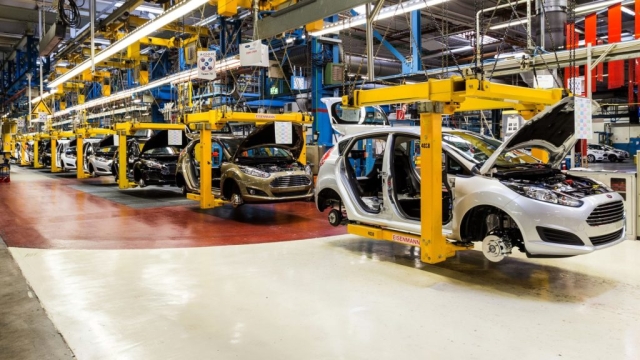
Welcome to the world of Heavy Vehicle Manufacturing and Supply! In this fast-evolving industry, innovation continues to drive the future of heavy vehicles. With advancements in technology, the way heavy vehicles are designed, manufactured, and supplied is undergoing a significant transformation. Manufacturers are now exploring new opportunities to enhance efficiency, sustainability, and performance in this critical sector.
From trucks to buses, construction equipment to agricultural machinery, heavy vehicle manufacturing plays a vital role in various sectors of the economy. The demand for these vehicles continues to grow, pushing manufacturers to adopt cutting-edge technologies and processes to stay ahead of the curve. As the industry looks towards the future, the focus is on integrating smart solutions, renewable energy sources, and automation to revolutionize the way heavy vehicles are produced and supplied.
Challenges in Heavy Vehicle Manufacturing
In the realm of heavy vehicle manufacturing, companies often face a myriad of challenges that can impact their operations. One significant obstacle is the constant evolution of technology and regulatory standards. Keeping up with the latest advancements in vehicle design, engine efficiency, and emissions requirements can be a daunting task for manufacturers.
Explore leading semi trailer options
Supply chain management presents another key challenge in the heavy vehicle manufacturing industry. Ensuring a seamless flow of components and parts from suppliers to the production line is essential for timely and cost-effective manufacturing processes. Disruptions in the supply chain, whether due to natural disasters, geopolitical issues, or supplier quality problems, can lead to delays and increased costs for manufacturers.
Moreover, the competitive nature of the heavy vehicle manufacturing market poses a continuous challenge for companies striving to innovate and stay ahead. Rivalry among manufacturers, both domestic and international, drives the need for constant improvement in design, production processes, and overall efficiency. Meeting customer demands while remaining competitive in a crowded marketplace is a balancing act that requires strategic decision-making and adaptability.
Innovations in Supply Chain Management
In today’s ever-evolving landscape, heavy vehicle manufacturers are embracing cutting-edge technologies to streamline their supply chain processes. One such innovation is the implementation of advanced data analytics tools that provide real-time insights into inventory levels, demand forecasts, and supplier performance metrics. By leveraging these tools, manufacturers can optimize their inventory, reduce lead times, and enhance overall operational efficiency.
Furthermore, the adoption of artificial intelligence and machine learning algorithms is revolutionizing supply chain management in the heavy vehicle manufacturing industry. These technologies enable manufacturers to automate repetitive tasks, predict maintenance needs, and detect potential disruptions in the supply chain before they occur. By harnessing the power of AI, manufacturers can proactively address issues and ensure uninterrupted flow of parts and components to the production line.
Another key innovation in supply chain management is the integration of blockchain technology to enhance transparency and traceability across the entire manufacturing process. By leveraging blockchain, manufacturers can securely record and track every step of the production cycle, from raw material sourcing to final product delivery. This not only improves accountability and reduces the risk of counterfeit parts but also bolsters customer trust by providing verifiable information about the origin and authenticity of each component.
Impact of Automation in Production Processes
Automation has revolutionized the heavy vehicle manufacturing industry by streamlining production processes. Through the integration of advanced robotics and artificial intelligence, manufacturers are able to improve efficiency, reduce errors, and increase output capacity.
Robotic arms play a key role in automating repetitive tasks, such as welding and painting, resulting in higher precision and consistency in the manufacturing process. This not only accelerates production timelines but also enhances the overall quality of heavy vehicles being produced.
Furthermore, the adoption of automation technologies has enabled manufacturers to optimize resource utilization and minimize waste. With real-time data analysis and monitoring, companies can make informed decisions to enhance productivity and respond swiftly to changing market demands.





